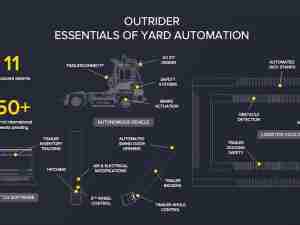Winter weather can be a nightmare for any vehicle owner, but for logistics companies that need to keep a fleet of trucks on the road to continue operating, the risks are all the greater. The cold temperatures can cause issues for almost every part of a truck from the battery to the tires and the chemicals we use to reduce ice and snow on the roads can cause corrosion. When a truck is taken off the road due to a fault, this results in loss of business and reduced revenue for the company, so it’s important to invest in regular maintenance for your fleets.

Perform battery checks regularly
Batteries typically drain faster in winter because they are working harder, so make sure you are checking the charge and age of the trucks’ batteries before every trip as well as any loose wiring.
Inspect the cooling system
While it may seem odd to some, you still need to maintain the truck’s cooling system during winter. This inspection should include the belts, hoses and radiator, as well as the coolant to check it is at the ideal freeze point.
Monitor the water separator and fuel filter
You need to monitor the water separator of each truck on a daily basis. When it is full, it should be drained to prevent contamination. You should also be sure to replace old fuel filters to protect the engine further.
Prevent cold soaks
A cold soak happens when fluids in the engine and the steel of the engine drop in temperature after being stationary for a day or more. This will affect the engine’s ability to start and/or charge.
Check the air dryer
Be sure to check that the air dryer is in good working order as, without it, water can enter the brake lines and freeze.
Tire pressure and depth
If the tires on your trucks have seen better days, it may be time to invest in new tires with an all-season tread ahead of the winter weather. However, whether you are buying new or sticking with the old, remember to check tire pressure and tread depth regularly. The pressure of the tires on your trucks is always important but when temperatures drop the tire inflation can drop by up to 2 psi and increase the risk of tire failure. Tires need to have adequate tread depth to give enough traction on wet, slippery roads.
Consider using engine block heater
It is harder to start a diesel engine in winter because the engine needs a higher cylinder temperature. If your drivers are traveling through particularly cold parts of the country and will be leaving the truck parked overnight, an engine block heater may be a wise investment. This will help to maintain engine temperature and make it easier to start up.
Try using fuel additives
Diesel contains a hydrocarbon called paraffin, which crystallizes in freezing temperatures and lets water emulsify and cause the fuel to turn to a slush-like substance commonly called ‘gel.’ To prevent diesel from ‘gelling’ you may want to use a fuel that has a high cetane rating and add an anti-gel additive each time you refuel.







